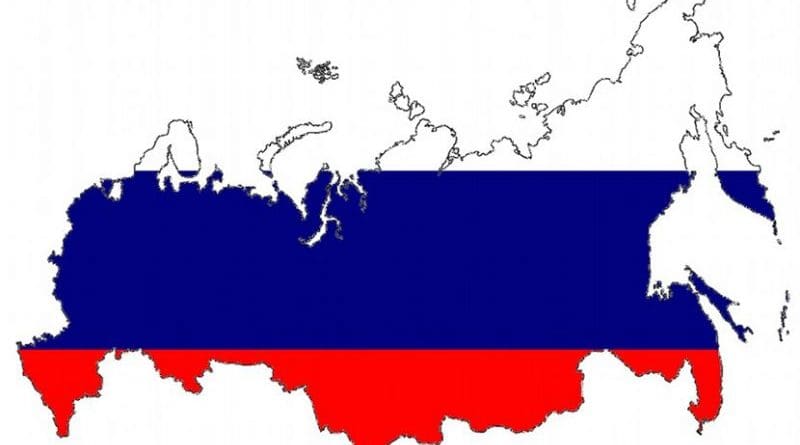New Appointment Extends Kremlin Tilt toward Russian Orthodox Church
By Paul Goble
Ivan Demidov, a prominent TV personality with close ties to the Moscow Patriarchate, the defense ministry, and the United Russia Party, has been named the Presidential Administration’s point man for supersizing relations with religious organizations, the latest indication of the continuing Kremlin tilt toward the Russian Orthodox Church.
According to yesterday’s “Gazeta,” the decision to elevate Demidov from his position as head of the Administration’s Department for humanitarian policy and social affairs to be deputy head of the domestic policy administration, where he will be responsible for relations with religious groups, was made on Friday (www.gazeta.ru/politics/2010/04/26_a_3358001.shtml).
He thus fills a post that had been vacant for more than a year following the departure of Mikhail Ostrovsky. And he won this elevation, Aleksey Chesnakov, a former official of the Presidential Administration, told the Moscow newspaper because of his success in “developing relations with public organizations and confessions.”
Aleksey Mukhin, the general director of the Moscow Center of Political Information, told “Gazeta” that he believes this appointment will “strengthen the role of the Russian Orthodox Church,” although commentator suggested that no one should expect any immediate shifts in the way in which the Kremlin deals with religion as a result.
But even if Mukhin’s prediction proves to be true, many leaders of Russia’s religious communities, both Orthodox Christian and others, are certain to either hope or fear that Demidov, given his past career and personal ties, will promote the interests of the Moscow Patriarchate one way or another.
Born in Syzran in 1963, Demidov worked his way up through Moscow television stations in the 1990s and was not prominently associated with the Orthodox Church until the last 15 years. (He was baptized only in 1996.) But in the last five years, he has become not only a prominent Orthodox television personality but also a religious advisor to United Russia.
In 2005, he became the chief editor of the Orthodox “Spas” television channel, and from 2006 to 2008, he also worked as coordinator for ideology and political work of United Russia’s Young Guard youth organization and as an advisor on Orthodoxy for that party as a whole (lenta.ru/lib/14159342/).
In April 2009, he was named head of the Presidential Administration’s department of humanitarian policy and social ties, and a month later, he was included in the government commission involved with “countering falsifications of history to the harm of the interests of Russia,” a post that brought him into close contact with the defense ministry.
There are three reasons to think that Demidov will play a growing role in defining church-state relations with Russia. First, his elevation coincides with the retirement last week of two longtime Kremlin officials who have pushed for a more balanced approach among Russia’s various religious communities.
Second, Demidov has been outspoken in support of many of the same Orthodox causes that First Lady Svetlana Medvedeva has shown an interest in, a possible indication that the two of them may be working together and even that she may have played a role in his elevation to his current post.
And third, Demidov has a long and very public record of backing the Moscow Patriarchate and the defense ministry, a record that suggests he will be an ardent in-house advocate of Kirill’s view that the Russian Orthodox Church should be more than primus inter pares, a position that is certain to generate conflicts with other religious communities.

